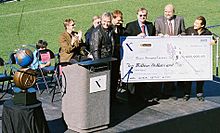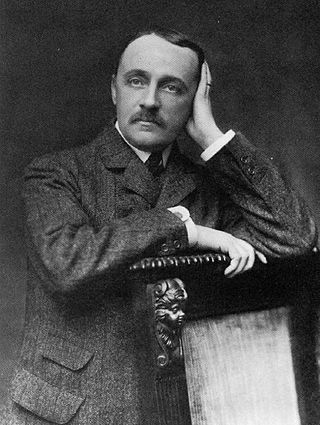
This list of challenge awards is an index to articles about notable challenge awards, or inducement prize contests. A cash prize is given for the accomplishment of a feat, usually of engineering.

This list of challenge awards is an index to articles about notable challenge awards, or inducement prize contests. A cash prize is given for the accomplishment of a feat, usually of engineering.
| Country | Award | Sponsor | First Offered | Description |
|---|---|---|---|---|
| France | Alkali prize | Louis XVI of France, French Academy of Sciences | 1783 | For a method to produce alkali from sea salt (sodium chloride). Achieved by Nicolas Leblanc in 1791. |
| France | Food preservation prize | Napoleon | 1800 | For a new way to preserve food. Won by Nicolas Appert in 1910. |
| United Kingdom | Longitude rewards | Parliament of United Kingdom | 1714 | Established by the Longitude Act. For anyone who could find a simple and practical method for the precise determination of a ship's longitude |
| France | Montyon Prize | French Academy of Sciences, Académie française | 1820 | A series of prizes awarded annually for making an industrial process less unhealthy, improving a mechanical process, book which rendered the greatest service to humanity, "prix de vertu" for the most courageous act by a poor Frenchman |
| Country | Award | Sponsor | First Offered | Description |
|---|---|---|---|---|
| United States | Hearst Transcontinental Prize | William Randolph Hearst | 1910 | To the first aviator to fly coast to coast across the United States, in either direction, in fewer than 30 days from start to finish. Expired in November 1911 without a winner. |
| United Kingdom | Daily Mail aviation prizes | Daily Mail newspaper | 1906 | Between 1906 and 1930 for various different achievements in aviation |
| France | Deutsch prize | Henri Deutsch de la Meurthe | 1900 | For first machine capable of flying a round trip from the Parc Saint Cloud to the Eiffel Tower in Paris and back in less than thirty minutes. [1] Won in 1901. [2] |
| United States | Dole Air Race | James Dole | 1927 | Air race across the Pacific Ocean from northern California to the Territory of Hawaii. Two of the eight planes successfully landed in Hawaii. |
| Hungary | Erdős problems | Paul Erdős | 20th century | Payments for solutions to unresolved mathematical problems |
| United States | Feynman Prize in Nanotechnology | Foresight Institute | 1993 | For significant advances in nanotechnology |
| France | Grand Prix d'Aviation | Henri Deutsch de la Meurthe | 1904 | For the first person to fly a circular 1-kilometer course in a heavier-than-air craft. [3] Won in 1908 [4] [5] |
| United States | Intelligent Ground Vehicle Competition | United States Army CCDC Ground Vehicle Systems Center etc. | 1993 | Undergraduate and graduate student teams design and build an autonomous ground vehicle capable of completing several difficult challenges. |
| United States | Knuth reward check | Donald Knuth | 1984 | For finding technical, typographical, or historical errors, or making substantial suggestions for Knuth's publications. |
| United Kingdom | Kremer prize | Royal Aeronautical Society | 1959 | Series of awards for human-powered flight. First prize won in 1977 by the MacCready Gossamer Condor. |
| United States | Orteig Prize | Raymond Orteig | 1919 | For the first Allied aviator(s) to fly non-stop from New York City to Paris or vice versa. Won by Charles Lindbergh in 1927. |
| Germany | Wolfskehl Prize | Paul Wolfskehl | 1906 | For proving Fermat's Last Theorem. Won by Andrew Wiles in 1997 |
| Country | Award | Sponsor | First Offered | Description |
|---|---|---|---|---|
| Africa (Various) | Afri-Plastics Challenge | Government of Canada, via Challenge Works | 2023 | For the reduction of marine plastics in Sub-Saharan African countries by developing and scaling innovative solutions to plastic mismanagement. |
| United States | America's Space Prize | Robert Bigelow | 2004 | For first US-based team to design and build a reusable crewed capsule capable of flying five astronauts to a Bigelow Aerospace inflatable space module. Expired in 2010 without a winner. |
| United States | Ansari X Prize | Anousheh Ansari, Amir Ansari via X Prize Foundation | 1996 | For first non-government organization to launch a reusable crewed spacecraft into space twice within two weeks. Won in 2004. |
| United States | Archon X Prize | Stewart Blusson via X Prize Foundation | 2006 | For the first team to rapidly, accurately and economically sequence 100 whole human genomes to an unprecedented level of accuracy. Cancelled in 2013. |
| United States | Automotive X Prize | Progressive Corporation via X Prize Foundation | 2007 | For super-efficient low-emission vehicles in three categories. Awarded in 2010 |
| United States | Brain Preservation Technology Prize | Brain Preservation Foundation | 2010 | For long-term storage of a brain's connectome. Small mammal prize won in 2016 and large mammal prize in 2018 |
| United Kingdom | Brexit Prize [6] | Institute of Economic Affairs | 2013 | For best plan for a UK exit from the European Union. Awarded in 2014. |
| United States | Buckminster Fuller Challenge | Buckminster Fuller Institute | 2007 | Annual international design competition for the most comprehensive solution to a pressing global problem. |
| United States | Centennial Challenges | NASA | 2003 | For various non-government-funded technological achievements by American teams. |
| United States | Cornell Cup USA | Cornell University | 2011 | Annual embedded design competition to empower student teams to become the inventors of the newest innovative applications of embedded technology |
| United States | DARPA Grand Challenge | DARPA | 2004 | Series of prizes for autonomous vehicles. |
| United States | DARPA Network Challenge | DARPA | 2009 | Contest to use social networking to locate ten red balloons placed around the United States. Won in less than 9 hours. |
| United States | DARPA Shredder Challenge 2011 | DARPA | 2011 | Contest to reconstruct documents shredded by a variety of paper shredding techniques. |
| United States | DARPA Spectrum Challenge | DARPA | 2013 | Contest for a radio protocol that can best use a given communication channel in the presence of other dynamic users and interfering signals. |
| United Kingdom | Earthshot Prize | The Royal Foundation | 2021 | Until 2030. Contests for sustainable development in environmental work annually. |
| United States | Elevator:2010 | Spaceward Foundation, NASA Centennial Challenges | 2005 | Until 2010. Contests for space elevator and related technologies. Annual competitions for climbers, ribbons and power-beaming systems |
| International | Global Security Challenge | InnoCentive | 2006 | For the most promising security technology startups in the world. |
| United States | Google Lunar X Prize | Google via X Prize Foundation | 2007 | For landing a robot on the surface of the Moon, traveling 500 meters over the lunar surface, and sending images and data back to the Earth. Expired in 2018 with no winner. |
| Australia | Hutter Prize | Marcus Hutter | 2006 | For each 1% data compression improvement on a specific 100 MB English text file. |
| United States | Hyperloop pod competition | SpaceX | 2015 | To design—and for some, build—a subscale prototype transport vehicle to demonstrate technical feasibility of various aspects of the Hyperloop concept. |
| United States | L Prize | United States Department of Energy | 2008 | For the replacement of two types of light bulb, an A19 60-watt incandescent light bulb and a PAR 38 halogen incandescent bulb |
| United Kingdom | Longitude Prize | Nesta | 2012 | For a team of researchers that develops an affordable, accurate, and fast point-of-care test for bacterial infection that is easy to use anywhere in the world |
| United States | Lunar Lander Challenge | NASA Centennial Challenges | 2006 | Series of prizes for teams that launch a vertical takeoff/vertical landing (VTVL) rocket that achieved the total delta-v needed for a vehicle to move between the surface of the Moon and its orbit. |
| United States | Methuselah Mouse Prize | Methuselah Foundation | 2003 | To the research team that broke the world record for the oldest-ever mouse; and to the team that developed the most successful late-onset rejuvenation strategy |
| United States | Millennium Prize Problems | Clay Mathematics Institute | 2000 | For solving any of: P versus NP problem, Hodge conjecture, Poincaré conjecture (solved), Riemann hypothesis, Yang–Mills existence and mass gap, Navier–Stokes existence and smoothness, Birch and Swinnerton-Dyer conjecture |
| United Kingdom | N-Prize | Paul H. Dear | 2008 | To launch a satellite weighing between 9.99 and 19.99 grammes into Earth orbit, and to track it for a minimum of nine orbits. The launch budget must be under £999.99 including the launch vehicle, all of the required non-reusable launch equipment hardware, and propellant |
| United States | Netflix Prize | Netflix | 2006 | For the best collaborative filtering algorithm to predict user ratings for films, based on previous ratings without any other information about the users or films. Won in 2009. |
| France | Peugeot Concours Design | Peugeot | 2000 | To design a Peugeot car for the year 2020 |
| United States | Prize4Life | Avi Kremer, ALS Association | 2007 | For the discovery of treatments and a cure for amyotrophic lateral sclerosis. |
| United States | Space Poop Challenge | NASA | 2016 | New designs for space toilet systems for use in space suits |
| United States | Tricorder X Prize | Qualcomm via X Prize Foundation | 2011 | For an automatic non-invasive health diagnostics system in a single portable package that weighs no more than 5 pounds (2.3 kg), able to autonomously diagnose 13 medical conditions |
| Australia | UAV Outback Challenge | Australian Research Centre for Aerospace Automation | 2007 | For the development of unmanned aerial vehicles. |
| United Kingdom | Virgin Earth Challenge | Richard Branson | 2007 | For a commercially viable design which results in the permanent removal of greenhouse gases from the Earth's atmosphere to contribute materially to global warming avoidance |
| United States | Wendy Schmidt Oil Cleanup X Challenge | The Schmidt Family Foundation via X Prize Foundation | 2010 | For efficient capturing of crude oil from ocean water |
| United States | X Prize Cup | State of New Mexico via X Prize Foundation | 2005 | For e.g. rocket-powered bicycles, rocket jet packs, lunar lander and space elevator |

Henri Farman was a British-French aviator and aircraft designer and manufacturer with his brother Maurice Farman. Before dedicating himself to aviation he gained fame as a sportsman, specifically in cycling and motor racing. Henri acquired French nationality in 1937.

1901 in sports describes the year's events in world sport.
Grand Prix motor racing, a form of motorsport competition, has its roots in organised automobile racing that began in France as early as 1894. It quickly evolved from simple road races from one town to the next, to endurance tests for car and driver. Innovation and the drive of competition soon saw speeds exceeding 100 miles per hour (160 km/h), but because early races took place on open roads, accidents occurred frequently, resulting in deaths both of drivers and of spectators. A common abbreviation used for Grand Prix racing is "GP" or "GP racing".
The Centennial Challenges are NASA space competition inducement prize contests for non-government-funded technological achievements by American teams.
This is a list of aviation-related events from 1908:
This is a list of aviation-related events from 1907:

A prize is an award to be given to a person or a group of people to recognize and reward their actions and achievements. Official prizes often involve monetary rewards as well as the fame that comes with them. Some prizes are also associated with extravagant awarding ceremonies, such as the Academy Awards.
An inducement prize contest (IPC) is a competition that awards a cash prize for the accomplishment of a feat, usually of engineering. IPCs are typically designed to extend the limits of human ability. Some of the most famous IPCs include the Longitude prize (1714–1765), the Orteig Prize (1919–1927) and prizes from enterprises such as Challenge Works and the X Prize Foundation.

Isidore Auguste Marie Louis Paulhan, was a French aviator. He is known for winning the first Daily Mail aviation prize for the first flight between London and Manchester in 1910.
The Feynman Prize in Nanotechnology is an award given by the Foresight Institute for significant advances in nanotechnology. Two prizes are awarded annually, in the categories of experimental and theoretical work. There is also a separate challenge award for making a nanoscale robotic arm and 8-bit adder.

Elevator:2010 was an inducement prize contest with the purpose of developing space elevator and space elevator-related technologies. Elevator:2010 organized annual competitions for climbers, ribbons and power-beaming systems, and was operated by a partnership between Spaceward Foundation and the NASA Centennial Challenges.
There are a number of competitions and prizes to promote research in artificial intelligence.

Henri Deutsch de la Meurthe, born Salomon Henry Deutsch, was a successful French petroleum businessman, and a supporter of early aviation. He sponsored a number of prizes to encourage the development of aviation technologies, including the Grand Prix d'Aviation and the Deutsch de la Meurthe prize.
There exist a number of competitions and prizes to reward distinguished contributions and to encourage developments in biotechnology.

Ernest Archdeacon was a French lawyer and aviation pioneer before the First World War. He made his first balloon flight at the age of 20. He commissioned a copy of the 1902 Wright No. 3 glider but had only limited success. He was regarded as France's foremost promoter and sponsor of aviation, offering prizes, commissioning designs, and organising tests and events.
The 1901 Challenge Cup was the 5th staging of rugby league's oldest knockout competition, the Challenge Cup. Contested during the 1900–01 Northern Rugby Football Union season, the final was played between Batley and Warrington at Headingley Stadium in Leeds.
The 1902 Challenge Cup was the 6th staging of rugby league's oldest knockout competition, the Challenge Cup. It featured clubs from England's 1901-02 Northern Rugby Football Union season.
The 1960–61 Challenge Cup was the 60th staging of rugby league's oldest knockout competition, the Challenge Cup.